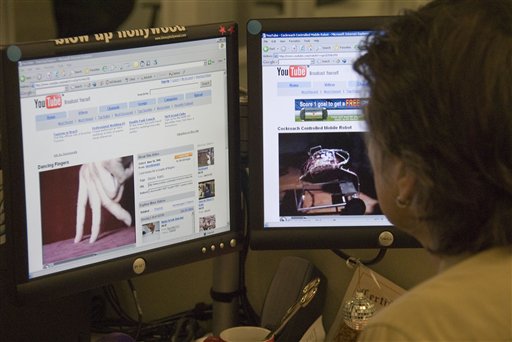
By Jaclyn Weiner
YouTuber Nicole Arbour posted a video entitled “Dear Fat People” in early September. The video quickly went viral and has amassed more than six million views.
The video started as an open letter to fat viewers. The opening was immediately followed by acknowledging that people are probably already offended and went on to taunt those people. “…What are you gonna do [fat people]? You gonna chase me? Really? You gonna chase me? It’s going to be like f—— Frankenstein. I can get away from you by walking at a reasonable pace. Frankenstein…not so fast,” said Arbour.
She goes on to claim that there is no such thing as fat-shaming. Fat-shaming can be defined as the unkind, generally public criticism of overweight individuals. Arbour claims that fat-shaming has been invented by fat people themselves. She called fat-shaming a race card, without the race. Not only did she say that fat-shaming is an illegitimate claim, but she also described it as a brilliant way of shaming people who have bad habits to “f—— stop.”
She then shared stories of experiences when overweight people have inconvenienced her life.
An example being when a “TLC-special” fat family that had a natural aroma of sausages, cut her in a long line at the airport, causing her to not have time to get Starbucks before her plane took off.
She ended the video with these words: “The truth is, I will actually love you no matter what, but I really, really hope this bomb of truth, exploding into your face, will act as shrapnel that seeps into your soul, makes you wanna be healthier, so that we can enjoy you as human beings longer on this planet.”
The response to the “Dear Fat People” video was overwhelmingly negative. It was considered to be widespread bullying and extremely insensitive. Additionally, due to this topic being brought up on such a wide-scale, research on the subject of fat-shaming has been more widely spread. Research shows that fat-shaming is much more likely to cause people to gain weight, develop psychological problems and suffer from eating disorders.
Arbour disabled the comments on her video and then went on to tweet, “If I disable comments on something, it doesn’t mean I’m scared, it means I don’t give a f— what u [sic] have 2 say. #TrollTheTrolls #TrollGate.”
With social media being so prevalent in society today, it has become easier to gain a following. Knowing this fact, many people have been trying to become famous by making something that will go “viral.” Many people have tried to accomplish this by talking about sensitive, topical issues in controversial lights. Basically, they will do whatever they can to get attention online, even if it means making themselves the villain.
Two of Arbour’s tweets, posted within three days of the uploading of her “Dear Fat People” video provide some proof of what she was trying to accomplish by making this video: “I got 1,000 new subs in the last hour” and “When you set a trap for trolls and white knights and they fall right into it.”
One of Arbour’s counterarguments to the criticisms she received was that she is a comedian and her video was just satire. This claim brings up the question: when is a joke just a joke?
Widely spread content across all media platforms can potentially have social ramifications. More people are aware of that today than ever before. This can potentially put content creators wondering whether something will be received as offensive in an awkward position.
On the other hand, offensive humor is also a part of our culture that can be well-received. Shows like South Park and comedians like Louis C.K. get away with jokes that can be deemed politically incorrect and offensive. Why is it that some content of this nature is received well and other content, such as Nicole Arbour’s video, is not? There is no exact science, but most of the time it comes down to intent and timing. Arbour’s video came off as mean-spirited and aggressive, while also talking about a subject that is particularly sensitive. Even with those things considered, Arbour’s video may still have been received in a less negative light if it was actually funny. There is nothing redeemable about an offensive joke that is not delivered well.
Jaclyn Weiner, FCRH ’18, is communications and media studies major from Wantagh, New York.










































































































































































































Eric • Sep 24, 2015 at 7:56 pm
Agree 100% with everything she said.